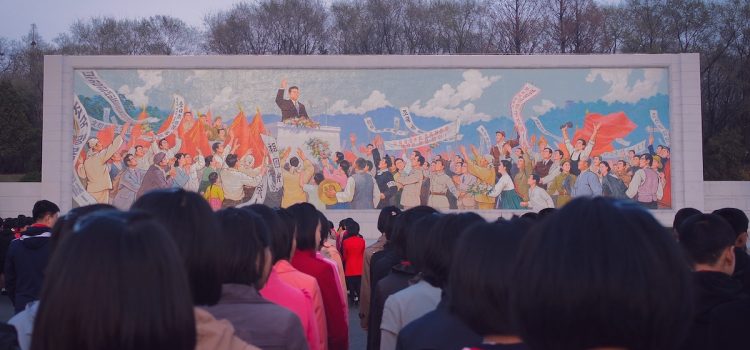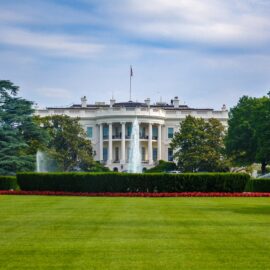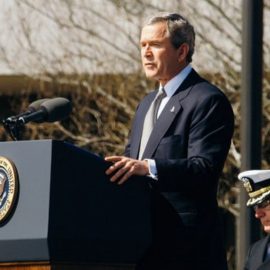

This article is an excerpt from the Shortform book guide to "Battlegrounds" by H. R. McMaster. Shortform has the world's best summaries and analyses of books you should be reading.
Like this article? Sign up for a free trial here.
Why is North Korea such a threat to the world? Why haven’t economic strategies halted its aggression? What’s the answer to the North Korea problem?
In Battlegrounds, General H. R. McMaster offers solutions to America’s foreign policy ills. He identifies North Korea as the riskiest “hot spot” in the world and recommends a coordinated effort to neutralize the threat.
Read more to learn about McMaster’s ideas on how to deal with North Korea.
Dealing With North Korea
The true wild card among the U.S.’s potential adversaries is North Korea. McMaster paints the North Korean government as the most oppressive regime in the world and possibly the most dangerous due to its leader Kim Jong-un’s desire to acquire nuclear weapons. McMaster explains how a history of conflicting diplomatic strategies has led to the current untenable situation. He argues that coordination of America’s allies in the region is the answer to the burning question of how to deal with North Korea.
Korea’s modern woes go back to the end of World War II, when the north and south were occupied by the Soviet Union and the U.S., respectively. After the stalemate of the Korean War, South Korea’s economy boomed while the North languished under three generations of dictators. With the North Korean people living in abject poverty, the U.S. and South Korea held out hope for decades that the northern regime would eventually collapse. It has not, and has only become more aggressive under Kim Jong-un, who has continually advanced his nuclear ambitions. The U.S. has inconsistently used economic sanctions to apply pressure on the Kim regime, while South Korea has sought reconciliation by proffering economic aid to the North.
(Shortform note: Publicly, North Korea has long gone back and forth on its intentions to develop nuclear weapons, which began as early as the 1950s. However, in 1985, North Korea signed the UN’s nonproliferation treaty. In 1991, the U.S. withdrew most of its own nuclear weapons from the region. President Bill Clinton’s conciliatory deal to halt North Korea’s arms program didn’t take the form of an actual treaty and was later criticized by President George W. Bush, who cut off the supply of oil to the country. This also proved ineffective, and North Korea conducted its first nuclear test in October 2006.)
McMaster says that neither hard nor soft economic strategies have worked. Kim Jong-un resents South Korea because of its economic strength, but he doesn’t dare open North Korea to the world lest he undermine his family’s grip on power. What’s needed to halt North Korea’s aggression is a coordinated effort toward economic and technological isolation of the country by the U.S., South Korea, Japan, and even China. Such an alliance will be difficult to achieve because of the region’s historic animosities—between Japan and South Korea, and between different generations within South Korea toward the U.S. itself. Most important of all is making China understand that a nuclear North Korea would be a danger to them as well.
(Shortform note: For decades, North Korea has defied expectations about the sustainability of its dictatorial government. Some of its modern resilience is due to the North Korean government’s efforts since 2018 to bolster its economy that, while not growing, maintains an internal status quo. Though McMaster touts sanctions as an effective tool against the Kim regime, they haven’t been successful at halting North Korea’s weapons development. In the shadow of North Korea’s nuclear threats, South Korea has declared its willingness to target its military capabilities at Kim Jong-un personally as a deterrent against North Korean aggression.)

———End of Preview———
Like what you just read? Read the rest of the world's best book summary and analysis of H. R. McMaster's "Battlegrounds" at Shortform.
Here's what you'll find in our full Battlegrounds summary:
- Why the U.S. has lost influence on the global stage
- The bad assumptions that cloud U.S. foreign policy
- Strategies the U.S. should adopt in order to help defend the free world






